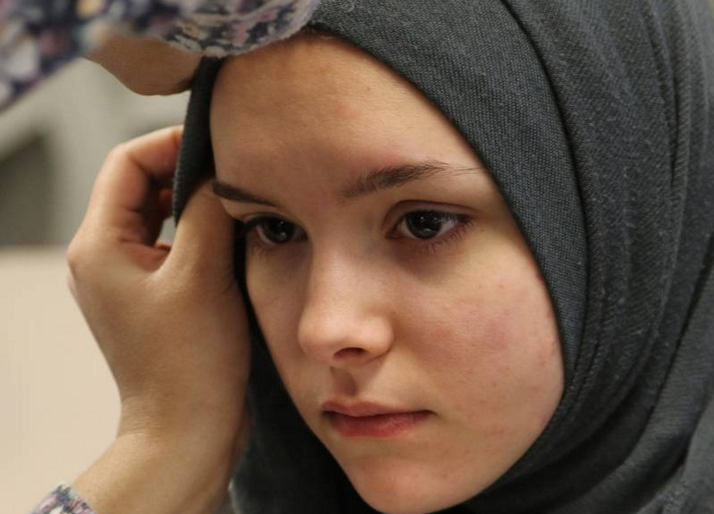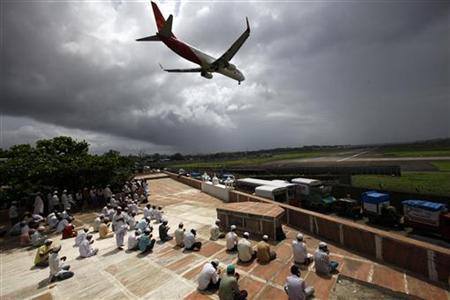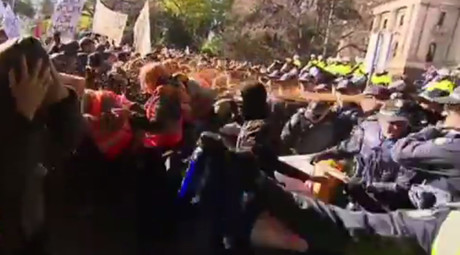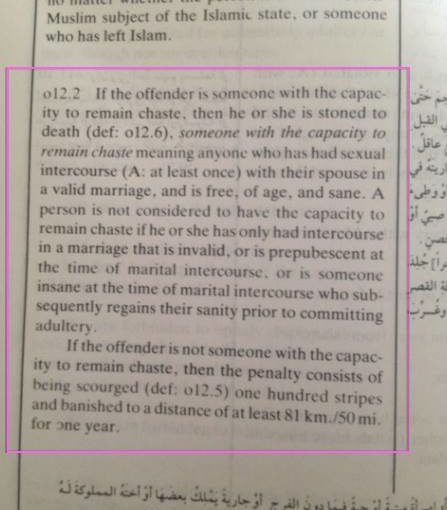 The head covering in Islam—the Hijab, is not liberation, nor will it ever will be for the advancement of women.
The head covering in Islam—the Hijab, is not liberation, nor will it ever will be for the advancement of women.
It was narrated from ‘Aa’ishah that the wives of the Prophet (peace and blessings of Allaah be upon him) used to go out at night to al-Manaasi’ (well known places in the direction of al-Baqee’) to relieve themselves and ‘Umar used to say to the Prophet (peace and blessings of Allaah be upon him), “Let your wives be veiled.” But the Messenger of Allaah (peace and blessings of Allaah be upon him) did not do that.
Then one night Sawdah bint Zam’ah, the wife of the Prophet (peace and blessings of Allaah be upon him), went out at ‘Isha’ time and she was a tall woman. ‘Umar called out to her: “We have recognized you, O Sawdah!” hoping that hijab would be revealed, then Allaah revealed the verse of hijab. Narrated by al-Bukhaari, 146; Muslim, 2170.
“And tell the believing women to lower their gaze (from looking at forbidden things), and protect their private parts (from illegal sexual acts) and not to show off their adornment except only that which is apparent (like both eyes for necessity to see the way, or outer palms of hands or one eye or dress like veil, gloves, headcover, apron), and to draw their veils all over Juyoobihinna (i.e. their bodies, faces, necks and bosoms) and not to reveal their adornment except to their husbands, or their fathers, or their husband’s fathers, or their sons, or their husband’s sons, or their brothers or their brother’s sons, or their sister’s sons, or their (Muslim) women (i.e. their sisters in Islam), or the (female) slaves whom their right hands possess, or old male servants who lack vigor, or small children who have no sense of feminine sex. And let them not stamp their feet so as to reveal what they hide of their adornment. And all of you beg Allaah to forgive you all, O believers, that you may be successful” [al-Noor 24:31]
Now you have Hijab…for the woman’s protection from other men.
And why do they need to wear it?
O Prophet! Tell thy wives and daughters, and the believing women, that they should cast their outer garments over their persons (when abroad): that is most convenient, that they should be known (as such) and not molested. And Allah is Oft-Forgiving, Most Merciful. Quran 33:59
Ihe Hijab is there because a woman uncovered, is a woman in danger of being molested.
Exceptions for Hijab (Head Scarf) - those who do not need to wear it
- the old woman who cant reproduce,
- the non believer,
Al-Hassan al-Basri (d. 728 AH/110 CE) said: Slave women in Medina used to be told certain things when they went outside. (One night) some foolish people accosted a group of women and bothered (or hurt) them because they thought they were slave women, but they were actually free women. Because of this, the Prophet ordered the believing women to cast their jilbabs upon themselves, so they would be distinguished as free women, and known from the slave women, and not bothered. — Tafsir Abd al-Razzaq al-Sanani (d. 211 AH/826 CE)
The punishments exist around adultery, remember a slave cannot sleep with another slave, or person unless its her master. If she does she would be punished. Its all there within the hadeeth that constitute “Islamic law” Its all situational, “My slave now is pregnant, i think it was another slave, what do I do?” … “Wait for the slave to have a child, the child becomes your slave if the child is not from you then she will be stoned for adultery etc” It takes little time to look into the hadith in relation to punishments/slavery.There is little point talking about punishments in the above when most people are in denial about the fact Islam always has and always will allow slavery as long as it holds hadith along side the quran. So to continue the evidence that HIjab is an identification tool to protect ones own property is best given by the example of Muhammed after he was given a slave girl whom was war booty. Yes she was viewed as the best prize of the day, the most beautiful and of course only fitting for Muhammad:
Narrated Anas:
The Prophet stayed for three rights between Khaibar and Medina and was married to Safiya. I invited the Muslim to his marriage banquet and there was neither meat nor bread in that banquet but the Prophet ordered Bilal to spread the leather mats on which dates, dried yogurt and butter were put. The Muslims said amongst themselves, “Will she (i.e. Safiya) be one of the mothers of the believers, (i.e. one of the wives of the Prophet ) or just (a lady captive) of what his right-hand possesses” Some of them said, “If the Prophet makes her observe the veil, then she will be one of the mothers of the believers (i.e. one of the Prophet’s wives), and if he does not make her observe the veil, then she will be his lady slave.” So when he departed, he made a place for her behind him (on his and made her observe the veil. Bukhari Volume 5, Book 59, Number 524
Why the West must never Support Hijabs
Top recommendations
- Casino Utan Spelpaus
- Casino Non Aams
- Crypto Casino
- Casino Non Aams Sicuri
- Casino Sites Not On Gamstop
- Migliori Casino Online Non Aams
- UK Casino Not On Gamstop
- Gambling Sites Not On Gamstop
- Slots Not On Gamstop
- Non Gamstop Casino Sites UK
- Sites Not On Gamstop
- Online Casinos
- Not On Gamstop Casinos
- Non Gamstop Casinos UK
- オンラインカジノランキング
- Gambling Sites Not On Gamstop
- Casino Online Non Aams
- UK Online Casinos Not On Gamstop
- Melhores Cassinos Online 2025
- Non Gamstop Casinos UK
- Gambling Sites Not On Gamstop
- Online Casino
- Casino Not On Gamstop
- Non Gamstop Casino Sites UK
- Best Non Gamstop Casino
- Crypto Casino
- Casino En Ligne
- Tous Les Sites De Paris Sportifs Belgique
- Tous Les Sites De Paris Sportifs Belgique
- Meilleur Site Casino En Ligne Belgique
- Casino Online Non Aams
- Casino En Ligne Fiable
- Casino En Ligne France
- Nouveau Casino En Ligne France
- Migliori Casino Senza Verifica
- Meilleur Casino En Ligne France
- Casino Fiable En Ligne
- Site De Casino En Ligne
- 토토사이트
- Migliori Casino Online Italia


